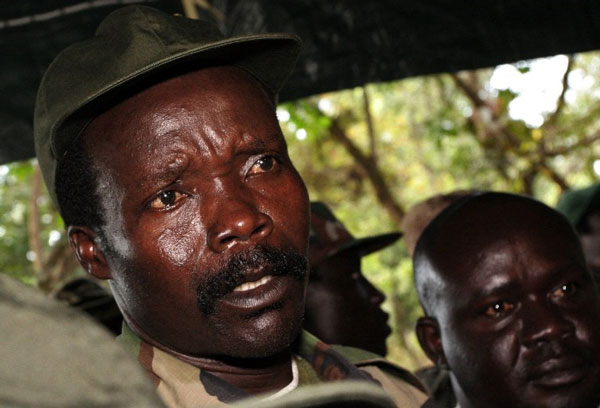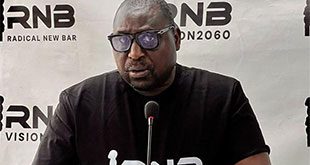
Gulu, Uganda | THE INDEPENDENT | The Office of the Prosecutor at the International Criminal Court (ICC) says it will add additional charges against the elusive Lord’s Resistance Army (LRA) rebel leader, Joseph Kony once a confirmation charge hearing is granted by Pre-trial Chamber II Judges.
The ICC issued an arrest warrant against Kony, the founder of the brutal LRA in 2005 for 33 counts of war crimes and crimes against humanity.
In November last year, 17 years since the arrest warrant was issued, the ICC prosecutor Karim Khan wrote to the pre-trial chamber II seeking authorization to revive and hold a confirmation hearing against Kony in his absence.
Dahirou Sant-Anna, the International Cooperation Adviser in the Office of the Prosecutor of the ICC says they intend to add more charges to the charges already in Kony’s arrest warrant once a confirmation charge hearing is granted.
Addressing the press in Gulu city on Monday, Dahirou didn’t however disclose the number of additional charges but noted that the prosecutor will on the evidence presented in Dominic Ongwen’s case for additional charges.
He says although the investigation is ongoing, they shall be relying on the evidence that had already been used in Ogwen’s case that is relevant to Joseph Kony and had probative value in front of the ICC judges.
Ongwen, an LRA child soldier-turned-commander of the Sinia Brigade was convicted by the ICC in 2021 to 25 years in prison for war crimes and crimes against humanity. He lost an appeal against his conviction and sentencing to jail in December last year.
Dahirou says the confirmation of charges against Kony is significant since it will give the opportunity for victims to publicly know the evidence that the prosecutor intends to rely upon.
He however notes that whereas the confirmation of the hearing will set the pace for the commencement of Kony’s trial, the trial won’t take place until he is arraigned to court physically to answer the allegations against him.
According to Dahirou, reviving the case against Kony will help the Office of the Prosecutor to trigger public debate and attract the attention of the international community to consider pursuing Kony from his hideout.
The submission made by Prosecutor Kharim Khan to revive the case against Kony is the first in the history of the ICC since its establishment in 2002, to prosecute those accused of war crimes, crimes against humanity, and genocide.
In any case the submission of the prosecutor is accepted, the process of confirmation of charges will entail the Judges hearing the oral submission from the prosecution, legal representative of the victims, and defence team.
Dahirou however revealed that since the submission of the prosecutor last year, Kony hadn’t yet been informed about the request for confirmation of charges hearing in his absentia.
He says in any case if the judges allow the request to proceed, they will intensify publicity to ensure Kony gets to know about it.
Kony remains the longest elusive suspect among four other top LRA commanders indicted by the ICC in 2005 with Ongwen being the first to have been arrested, tried, and sentenced to jail. Three others, Raska Lukwiya, and Okot Odhiambo are all dead, and Vincent Otti is presumed dead.
Already, the US State Department has offered a 5-million-dollar bounty leading to the arrest of Kony.
Kony is accused of committing murder, cruel treatment, enslavement, rape, and attacks against the civilian population in Northern Uganda.
The LRA rebel leader launched a brutal rebellion from Northern Uganda against President Museveni’s leadership that left over 1 million people displaced and hundreds of thousands killed in a war that spanned two decades.
The violence escalated and spilled over to the neighboring South Sudan, the Democratic Republic of the Congo (DRC), and the Central African Republic.
*****
URN
 The Independent Uganda: You get the Truth we Pay the Price
The Independent Uganda: You get the Truth we Pay the Price



